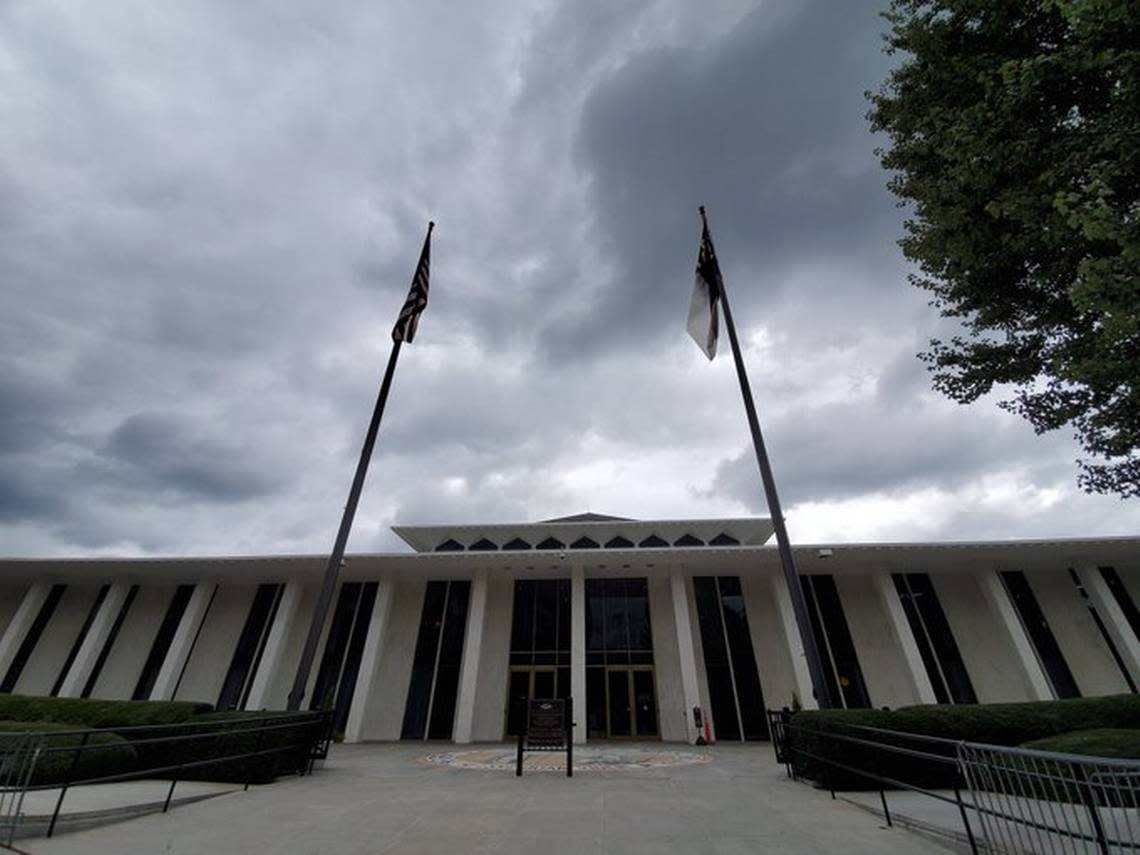NC Democrats push for constitutional amendment protecting public records access

Democratic lawmakers may be quickly shut down in a new effort to expand North Carolina’s transparency laws.
Last year’s state budget written by Republican lawmakers, and allowed to become law by Democratic Gov. Roy Cooper, exempted state lawmakers from following state public record laws, as reported previously by The News & Observer. The bill allowed lawmakers to decide what public records they wanted to reveal upon request.
A group of Democrats now want to amend the state constitution to create a right to access public records. At a press conference Wednesday afternoon unveiling their proposal, House Bill 1075, the lawmakers denounced their Republican colleagues for failing to promote transparency.
“[The state budget] made it permissible by law for legislators to destroy or sell records,” said Sen. Graig Meyer, a Chapel Hill Democrat. “I cannot imagine any reason why [legislators] would ever need to destroy or sell records from doing the public’s business.”
Three-fifths of the House and Senate must back a constitutional amendment before it can be placed on the ballot for voter approval.
In 2011, Republicans in the General Assembly proposed a similar constitutional amendment titled the “Sunshine Amendment,” inspired by Florida’s open record laws. The bill had been sponsored by 23 Republicans. Three are current senators — Ralph Hise, Brent Jackson and Buck Newton.
Earlier this year, The Society of Professional Journalists gave its annual “Black Hole Award” to the General Assembly “for violating the public’s right to know in the change of the state’s public records law.”
On Thursday, the bill won praise from the North Carolina Press Association, of which The N&O and Charlotte Observer are members.
“This amendment mandates that authorities cannot restrict access to public meetings and records unless they can demonstrate that such limitations protect a compelling public interest,” according to a post on the NCPA website. “This critical measure fosters trust in public institutions by ensuring that any restriction on access is both justified and necessary.”
Rep. Tim Longest, a Raleigh Democrat, said the public has a right to know what their representatives are doing and noted they have been elected to a “position of public trust.”
“By shining the light of transparency, we allow everyday people to be more active and informed participants in our democracy,” Longest said.
HB 1075 and a companion bill in the Senate have been referred to the rules committees in both chambers. Meyer said the future of the amendment lies in the discretion of the rules committee chair, though he doesn’t expect it to move forward.
“We stand at a crucial moment for sustaining some of the fundamental tenets of democracy,” Meyer said. “If the public can’t see what the public pays us to do, then we’re failing a fundamental test the public expects of us.”


